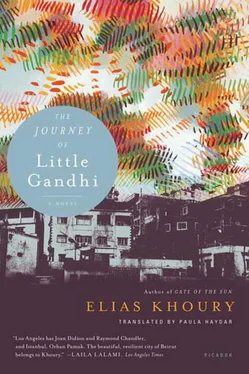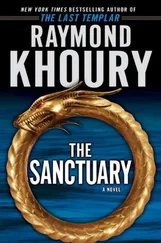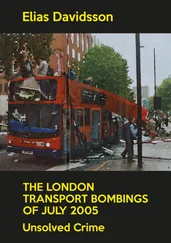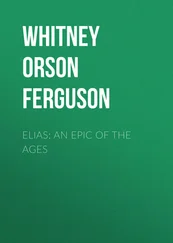Gandhi agreed. He bought a mirror, two dresses, a pair of shoes, and a broom and brought twenty kilos of lemons with him to the village, and ten kilos of sugar. When it was all over, he took Fawziyya to the little house in Nabaa, which would later become a restaurant. That was 1938; Nabaa was all dirt roads and there was no water and no electricity. Fawziyya had difficulty at first. She said she hated Armenians, then she started liking them and got used to everything. When Gandhi left Nabaa early in 1976, escaping the bombs and the war, he lived on the ground floor of the Burj al-Salam building on Hamra Street. The only thing Fawziyya grieved over was Nabaa. She said she hated Hamra Street and felt she was living in a cage.
“You’re talking as if that is the reason,” Gandhi said to her. “If you hadn’t talked that way, the girl wouldn’t have run away.”
“She ran away because there’s no more medicine, you know that,” his wife said.
When the girl came back, and Gandhi discovered she was still a virgin, he felt he’d tried everything. Her running away was his last chance. He’d done everything, but she didn’t get better. She’d lost so much weight she’d become thin as a pole, and she didn’t talk.
How did Suad’s sickness all start?
Gandhi didn’t know, and Fawziyya didn’t know. Gandhi didn’t remember his daughter complaining of anything. She was like any other little girl. When Gandhi would try to remember her childhood as the doctor asked, he drew a blank.
“I swear I don’t remember, Doctor. Yes I do. She went to school, but I took her out because she’s a girl, she was twelve years old and I figured that was enough. I put her with Um Jamil the seamstress, and she learned to sew and cut patterns, she was so good, she knew how to do everything perfectly.”
“And then?” the doctor would ask.
“And then, then what? There is no then, doctor. I mean, she got like this.”
“What do you mean like this?” the doctor would ask.
“She’d brood over things, and wouldn’t eat, not one night passed when I’d wake up and find her asleep, she’d be sitting up in her bed, with her eyes wide open, as if she were seeing things we couldn’t see.”
“And what would she say?”
“Who?” asked Gandhi.
“Her. What would she say?” the doctor said.
“I’d sit next to her. I’d wake up in the middle of the night and find she wasn’t asleep. I’d sit next to her and talk to her, and I wouldn’t understand. She’d speak, but as if I weren’t understanding, as if she weren’t talking to me, as if she were talking to someone else.”
“And before that?” the doctor would ask.
“There is no before,” Gandhi would answer. “She knew she was sick, sometimes she’d tell me she was sick, and then I’d think everything was all right, but she’d go back.”
“Could it’ve been the war?” the doctor would ask.
Gandhi would try to remember. Nothing had happened, the war was everywhere, his daughter before the war, before April 13, 1975, and before the siege of Nabaa, before people were kicked out of their homes and degraded. Gandhi wasn’t kicked out of his home, and wasn’t degraded. He told Fawziyya he understood what was going on. He told her they were going to drive out the Palestinians and the Muslims and kill them. He told her to go with him. He took her and the two children and went to Ras Beirut, and there he found a small room in Witwat Quarter. Then he moved to the ground floor of the building, thanks to Zaylaa, and stayed there. He didn’t live the degradation and the expulsion from his home. Gandhi knew about it, he found out about it, and fled with a trick. He paid the Armenian and told him he wanted to go to West Beirut. The Armenian didn’t go with them. His daughter Navir took them to West Beirut. She drove the car, and my God, Navir was snow white, white as a sheet. She came early in the morning and told them to follow her. They followed her to the car, and she wouldn’t let them take anything.
“Everything on the ground. We can’t take anything with us,” Navir said.
Gandhi left everything but his wooden box. She tried to stop him. He left the mirror and the broom and the mattress and the rest of the dowry.
“Not the box,” Gandhi said. “No way, it’s my livelihood.”
She let them get into the car, Gandhi next to her with the box in his hands, and Fawziyya and Suad and Husn in the backseat in the big black Chevy. She didn’t stop at any of the checkpoints. When the checkpoint guards saw Navir, they opened the way for her as if she were godsent. Suad sat next to her mother in a stupor, as if she weren’t seeing or hearing at all.
Suad was like that, didn’t see or hear at all.
Gandhi tried to tell her story to the doctor, but he remembered that doctors laugh at people. He remembered the kabbout doctor and the pharmacist. He told Alice he went to the pharmacist at Heliopolis Pharmacy and bought condoms for twenty-five piasters, as the doctor had told him. Gandhi held the package and asked the pharmacist how to use them. The old man bared his teeth and told him, using his finger in a disgusting way to show where it went. He opened the package, took a condom and inflated it, and told Gandhi to take it. Gandhi held it and then threw it onto the floor and left the pharmacy with the man’s laughter ringing in his ears.
Gandhi couldn’t solve the problem, after the doctors failed and the girl became like an idiot who didn’t have any idea what was happening around her. Gandhi agreed to Fawziyya’s suggestion. He took her to the village and there he met with Sheikh Zakariyya, a different Sheikh Zakariyya than the one who married them and buried his father. He was related to the first Zakariyya and looked just like him; the little cough, the thick fingers, the white eyebrows. After he put his hand on the girl’s head Sheikh Zakariyya said, “There is no power and no strength save in God Almighty. I can’t do anything, my son, the girl is possessed by an evil spirit. I can’t.”
He advised him to take her to Sheikh Hasan al-Alwani in the city of Hama. Gandhi went to a friend’s place in Hums and she helped him get a taxi to Hama to meet with Sheikh Hasan al-Alwani. If you didn’t know Sheikh Hasan al-Alwani, you didn’t know anything. He was one of a kind. “My God, he was one of a kind,” Gandhi said. “How beautiful, meekness, a melodious voice, a quiet social gathering, and prayer.” When you visited him you’d think you were going to the next world, and he’d be sitting there. He sat in the front of the hall, three fireplaces around him burning red wood, and there were men, women, and prayers. When Gandhi entered with Suad, they heard a voice ordering them to kneel, so they kneeled. Gandhi tried to stand up after his knees started to get numb, but he heard the same command, so he kneeled again. They kneeled for about an hour, and there were lots of other people kneeling around them. Sheikh Hasan al-Alwani sat motionless, as if he were a stone.
Abd al-Karim heard the order to approach. He heard the voice say, “Abd al-Karim son of Husn son of Abd al-Karim.” But he hadn’t given his name to anyone yet. He went in to see the sheikh with everyone else, and kneeled like they did, and didn’t tell anyone his name or what he wanted. When he entered, someone covered the girl’s head.
Abd al-Karim got up when he heard his voice, took his daughter’s hand, and went forth.
“No, no. Suad stays there,” the voice said.
He brought his daughter back to her place and ordered her to kneel. She didn’t say anything, she knelt as she had before, and Gandhi went forward.
“Take these,” the voice said, and he gave him three papers, sealed with a waxlike substance.
“The first paper is for the dog to eat,” the voice said.
Читать дальше












